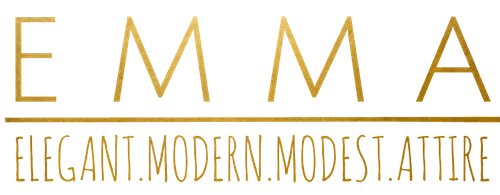Hijab Articles
Is Cetyl Alcohol for Skin Halal or Haram?
Buyers conscious of Islamic rules usually check the ingredients list before buying anything that may be deemed haram. I know the feeling—squinting your eyes to read the tiny font isn’t fun, but it’s necessary in the world we live in today!
If your recently-bought skin care product contains cetyl alcohol, the question may have popped into your mind: is cetyl alcohol for skin halal or haram?
With the wide range of alcoholic ingredients in skincare products, it can often be confusing to identify the halal from the haram ones. If you want to make sure your products are 100% halal, here’s our guide on halal and haram alcohol ingredients:
Is Cetyl Alcohol for Skin Halal or Haram?

Cetyl alcohol is a fatty alcohol commonly used in skincare products and cosmetics as an emollient, emulsifier, thickener, and stabilizer. Despite its name, cetyl alcohol is not drying like the alcohols often found in skincare products (such as ethanol or isopropyl alcohol); instead, it is a moisturizing agent.
That’s why it’s often used in shampoos, soaps, face washes, and lotions.
That’s why it’s also a halal ingredient to use—because it’s not essentially alcohol as much as it’s an emulsifying wax that’s made from fatty alcohols. Those fatty alcohols are also derived from vegan sources like palm oil, removing any suspicion that it’s haram.
You can conclude from this that cetyl alcohol is permissible for external use in skincare products, but in the end, Allah knows best.
Uses of Cetyl Alcohol in Skincare Products

Here are some key points about cetyl alcohol and its use in skincare products:
- Emollient: Cetyl alcohol helps to soften and smooth the skin by forming a protective barrier on its surface. This helps to retain moisture and prevent water loss, making it particularly beneficial for people with dry or sensitive skin.
- Emulsifier: Cetyl alcohol acts as an emulsifier, which means it helps to bind together ingredients that would otherwise separate, such as oil and water. This property is essential for creating stable and uniform skincare formulations like creams and lotions.
- Thickener: Cetyl alcohol contributes to the viscosity of skincare products, giving them a thicker consistency. This helps to improve the spreadability of creams and lotions and gives them a luxurious texture.
- Stabilizer: Cetyl alcohol can help stabilize the structure of skincare formulations, preventing them from breaking down or separating over time. This helps to maintain the efficacy and shelf-life of the products.
- Non-comedogenic: Cetyl alcohol is generally considered non-comedogenic, meaning it is unlikely to clog pores or cause acne breakouts. However, people with very sensitive or acne-prone skin may still want to patch test products containing cetyl alcohol to ensure they do not experience any adverse reactions.
Overall, cetyl alcohol is a versatile ingredient commonly used in skincare products due to its moisturizing and texture-enhancing properties. It can be found in a wide range of formulations, including creams, lotions, moisturizers, cleansers, and hair care products.
Other Halal Alcohols in Skincare Products

Cetyl alcohol isn’t the only permissible alcoholic ingredient in skincare products. Apparently, benzyl alcohol is halal as well because it’s derived naturally from plants. It can also be made synthetically, which means it’s okay to use it.
The use of benzyl alcohol in skincare products is a bit different from the use of cetyl alcohol. It’s used as a preservative because it has antimicrobial properties, which means it stops the growth of bacteria in your product. It’s mostly used in lotions, shampoos, and even some makeup products.
Other alcohols that are halal to use in skincare products are cetylstearyl, cetostearyl, or cetearyl. They’re all the same thing, and like cetyl alcohol, they’re also derived from fatty alcohols like vegetable oils, so they’re permissible for skin use.
Final Thoughts
So, is cetyl alcohol for skin halal or haram?
Because it’s derived from vegetable oils and can be synthetically produced, it’s halal to use in skincare products. The same goes for benzyl alcohol, which is often used as a preserving agent, and cetearyl alcohol, which softens the skin and is used in plenty of popular products.
As long as these alcohols are derived ethically and can be made synthetically, they can be used on your skin without an issue.
And in the end, Allah knows best.


Read More
A Better Version Of Myself
6th year in my hijab. Hijab builds me, it protects me. Flash back, 6 years ago… I was afraid of [...]
6 Comments
Oct
Nesma Khedr’s Hijab Story
❤ الحمد لله الذى بنعمته تتم الصالحات …. قلعته بعد ١٦ سنه حجاب و لبسته تانى بعد ٨ شهور [...]
35 Comments
Sep
Greater Than All
As these very special 10 days of Dhul Hijja unfold, I’m intrigued to explore more of their hidden gifts sent [...]
11 Comments
Aug